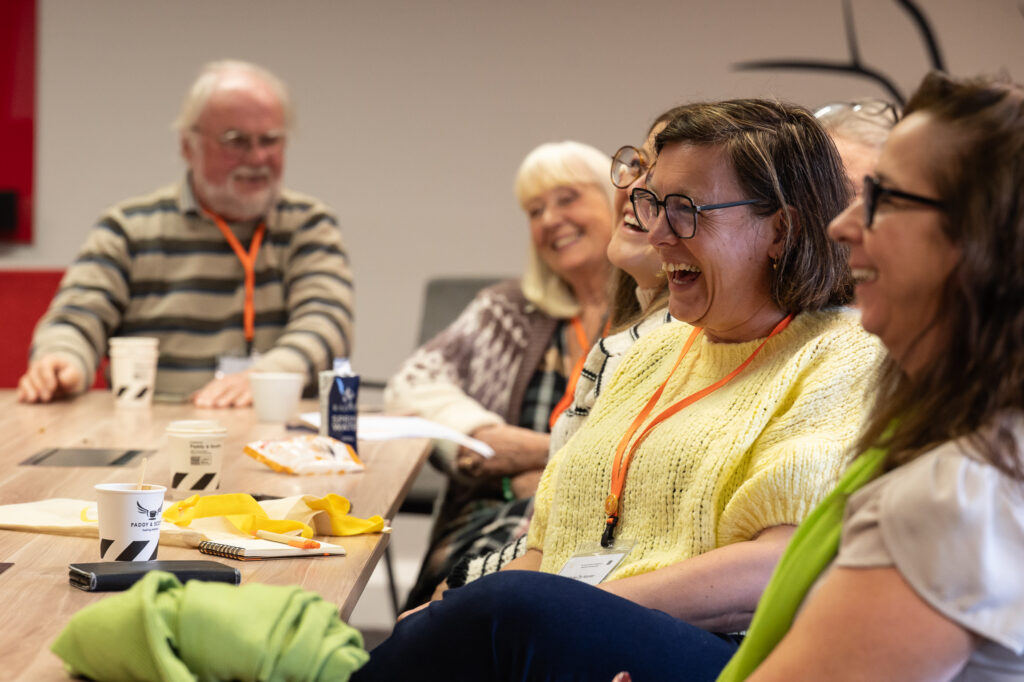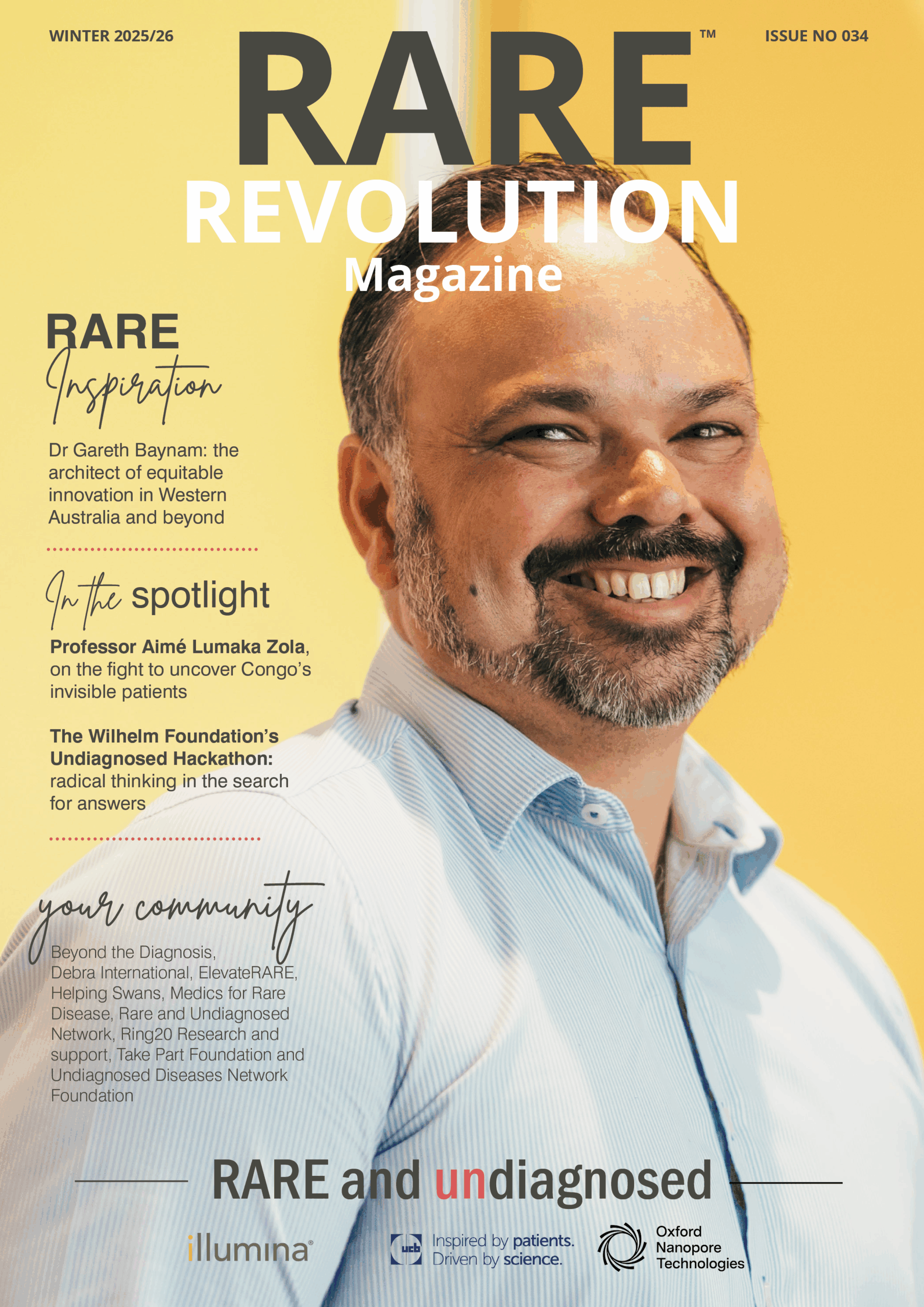A tapestry of hope, advocacy & community: Day 2 of the NPUK AFC and IW 2025 (Part 2)

The NICE decision: what happened and what’s next?
The discussion on the NICE decision and treatment access for ASMD was filled with a palpable sense of urgency and frustration. Patients expressed their deep concern about the inconsistent access to treatment and the uncertainty surrounding future availability. There were discussions about compassionate access programmes, which varied significantly by country and often included age restrictions and periodic re-evaluations. The emotional impact of potentially losing treatment was evident, with some patients feeling that the community was being used to exert political pressure.
Financial and ethical considerations were also raised, with participants questioning decisions and discussing the responsibility of pharmaceutical companies to make humanitarian exceptions. The conversation highlighted the stark global disparities in treatment access, with some countries having limited or no access at all. The advocacy approach was a key focus, with participants discussing the development of a collaborative campaign to raise awareness and push for consistent treatment access. There was a sense of determination to give companies a short window to respond before escalating efforts, reflecting a community ready to act.





Raising our voices: campaigning for change
John Lee Taggart, head of communications at NPUK, introduced the “Life is Rare” campaign with a powerful call to action. His presentation was filled with passion and urgency, as he described the campaign’s aim to make a breakthrough treatment for a rare disease accessible to more people in the UK.
John detailed the plans to share patient stories, work with government and policymakers, and push for systemic change. With only four months to reapply to NICE, he called for community support and action. The immediate goal was to engage everyone in meaningful conversations, while the medium-term vision was to address barriers that delay or deny access to treatments. He stressed that sharing stories could help raise awareness and support.
ASMD afternoon sessions: insights and answers
The ASMD afternoon sessions, led by Dr. Uma Ramaswami, consultant in inherited metabolic disorders, clinical lead, Lysosomal Disorders Unit, Royal Free Hospital, London and Dr Robin Lachmann Ph.D. FRCP, consultant in inherited metabolic diseases, National Hospital for Neurology and Neurosurgery, provided a platform for experts, advocates, patients, and family members to address unmet needs in ASMD patients. With open dialogue and a collaborative spirit, Dr. Ramaswami and Dr. Lachmann focused on the importance of bone health, noting the high prevalence of vitamin D deficiency in the UK population. They discussed enzyme replacement therapy (ERT) and its regulatory status, as well as the crucial transition from pediatric to adult care.
High triglycerides and growth issues were also addressed, with suggestions for lipid-lowering therapies and dietary reviews. The need for better support for mental health, social isolation, and practical challenges was emphasised. Discussions highlighted the need for comprehensive supportive care, a patient-centred approach, and the creation of lay-friendly clinical guidelines.
Strategic planning and community engagement session
This session focused heavily on the challenges of funding for NPUK, the importance of community input, and strategic planning for the future. David Roberts, NPUK trustee and chair emeritus, laid out the realities of grant applications where in an incredibly competitive landscape, only a small percentage of applications are successful. This set the stage for a collaborative effort to gather meaningful input from the attendees.
Charlotte Glendinning, bid writer and fundraising consultant then guided the group discussions. Participants were divided into smaller groups, each focusing on specific areas: access and support services, mental health and social isolation, medical care, and practical challenges. People spoke from personal experience, offering insights and suggestions with a mix of vulnerability and determination. There was a clear understanding that their contributions would directly influence the charity’s future direction.
Key themes that emerged from these discussions included the critical need for support beyond medical treatment. The emotional and social impacts of Niemann-Pick diseases were repeatedly highlighted, with calls for more resources to address mental health and social isolation. Participants also highlighted the importance of clear communication, accessible resources, and a patient-centered approach that acknowledges the unique experiences of individuals.
The session concluded with sincere gratitude for the participants’ input and a strong commitment to utilising their feedback to shape future support and services, showing that the community’s voice truly mattered and would drive meaningful change.
The Maypole Project—whole family wellbeing
Sally Bushell, chief executive of The Maypole Project, outlined the organisation’s comprehensive support services for families with children diagnosed with disabilities. Her presentation conveyed a deep understanding of the challenges faced by these families and a strong commitment to providing holistic, person-centered support.
She detailed the wide range of services offered, including therapy services like play therapy and counselling, individual and family support, a sensory center, transition and daily living skills training, a helpline, and professional training. Sally emphasised the project’s approach, which is built on non-judgmental, trustworthy relationships and long-term support for entire families. The focus is on providing flexible service access and adapting to the unique needs of each family.
The Maypole Project’s programmes, such as Maypole Active (after-school sports and activities), holiday programmes, sibling support groups, and parent support networks, were presented as integral parts of their holistic approach. Sally highlighted the unique features of the organisation, including its work across the UK, acceptance of self-referrals, provision of continuous support, and focus on family well-being. She also mentioned the clinical supervision offered for professionals, underscoring the project’s commitment to quality and best practices. Sally’s key priorities resonated strongly with the audience: holistic family support, therapeutic interventions, self-care strategies, and community engagement.
Patient reported outcome tool (PRO) measure for ASMD
Justin Hopkin, chief scientific officer, INPDR, chair emeritus, NNPDF, INPDA Research Committee gave a presentation on the development of a patient reported outcome (PRO) tool for ASMD that was both informative and reassuring. He explained the rigorous process involved in creating a tool that meets the standards of regulatory bodies like the FDA.
Justin described the comprehensive literature review, consultations with medical experts, and, most importantly, the interviews with patients that formed the foundation of the PRO tool. His detailed explanation of the research process underscored the commitment to accurately capturing patients’ lived experiences. He outlined the nine key symptoms most frequently reported by patients, with fatigue being the most common, and explored how these symptoms impact various aspects of patients’ lives, including physical activities, self-perception, social activities, relationships, and daily chores.
The development of the questionnaire involved multiple rounds of review with experts and patients, including cognitive interviews to ensure clarity and comprehensiveness. He conveyed the goal of creating a tool that could be incorporated into the patient registry, providing meaningful data for researchers, regulators, and payers. He highlighted the importance of patient voices in shaping research and treatment development.
Stories that connect us: the global voices of ASMD
Sandra Cowie, President, INPDA’s finished the day with a presentation on the global access challenges for ASMD treatments which was both eye-opening and deeply moving. She presented the findings of a survey conducted among the International Niemann-Pick Disease Alliance (INDPA) member organisations emphasising the need for a united global effort to address these disparities.
The survey results painted a stark picture: 8% of respondents reported no access to approved therapies, 50% reported limitations in accessing approved treatments, and only 25 out of 54 countries have full or partial funding mechanisms for treatments. Sandra detailed the major barriers to treatment access, including regulatory prescription challenges, lack of insurance coverage, high treatment costs, and significant delays in treatment approval.
Despite these challenges, Sandra’s presentation was also one of hope and action. She outlined the strategies being employed by the INDPA to address these issues, such as ASMD awareness campaigns, developing an expert community to drive research, connecting patients with local disease organisations, supporting the development of new patient groups, and working with the global lysosomal storage disease (LSD) community.
Sandra highlighted the variability in treatment management across countries, including differences in infusion locations, funding mechanisms, and diagnostic approaches. She underscored the importance of increasing awareness, improving access, and creating a stronger collective voice for rare disease communities globally. Her final message was one of connection and empowerment, emphasising that by sharing stories and working together, the global ASMD community can create meaningful change.







Overview
The second day of the Annual Family Conference and Interactive Workshop on Niemann-Pick diseases was a powerful blend of research, advocacy and community building. The tone throughout the day was consistently collaborative, supportive, and patient-centered, reflecting the strong bonds within the Niemann-Pick community with a reunion of people who had known each other their entire lives, and introducing the next generation of the community to the family. The event served not only as a platform for sharing knowledge and updates but also as a catalyst for action, driving forward efforts to improve treatment access, support families, and advance research for Niemann-Pick Diseases.
The financial support from various organisations, reflects the broader commitment to advancing research and care for Niemann-Pick diseases. This collaborative effort, bringing together patients, families, clinicians, researchers, and industry representatives, is essential for making meaningful progress.
The conference was made possible by the support of NPUK, which relies on donations and grants, and financial support from Azafaros, Cyclo Therapeutics, IntraBio, Sanofi, and Zevra Therapeutics, who provided unrestricted educational grants. The financial support from various organisations, reflects the broader commitment to advancing research and care for Niemann-Pick diseases. This collaborative effort, bringing together patients, families, clinicians, researchers, and industry representatives, is essential for making meaningful progress and showcases the dedication and collaborative spirit of the Niemann-Pick community, driving progress towards better understanding and treatment of these complex diseases.




